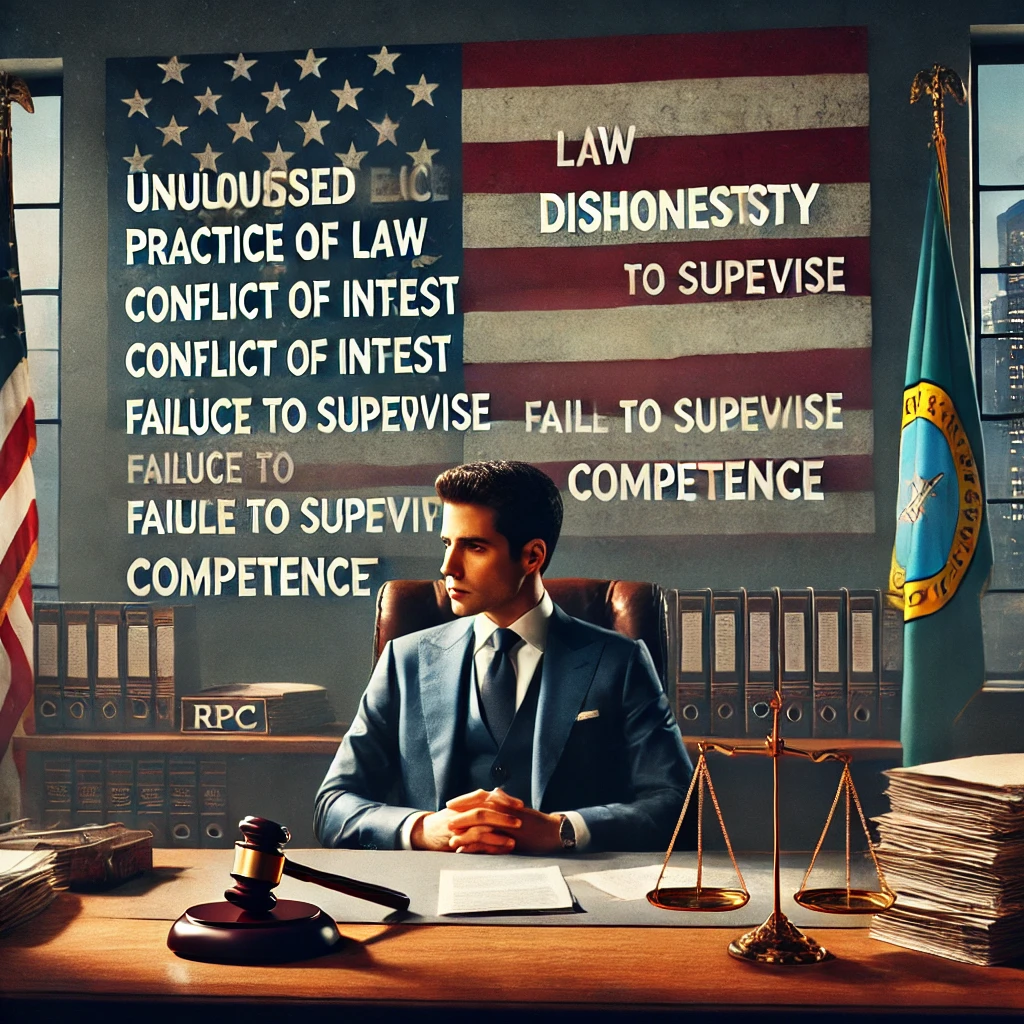The pilot episode of Suits introduces viewers to the high-stakes world of corporate law through the characters Harvey Specter, a top lawyer at Pearson Hardman, and Mike Ross, a brilliant college dropout with a photographic memory. While the episode is filled with legal drama and clever tactics, it also showcases several actions that would constitute serious violations of the Rules of Professional Conduct (RPC) under Washington law.blanfordlaw.com+2blanfordlaw.com+2en.wikipedia.org+2blanfordlaw.com+2blanfordlaw.com+2blanfordlaw.com+2
Unauthorized Practice of Law (RPC 5.5)wabarnews.org+9blanfordlaw.com+9nwsidebar.wsba.org+9
The central violation in the pilot episode is the unauthorized practice of law. Mike Ross, who never attended law school and doesn’t have a law degree, is hired by Harvey Specter as an associate at Pearson Hardman.bclawimpact.org+14blanfordlaw.com+14nwsidebar.wsba.org+14blanfordlaw.com+2blanfordlaw.com+2en.wikipedia.org+2
Under Washington’s RPC 5.5, a lawyer must not assist another person in the unauthorized practice of law. By hiring Mike and allowing him to represent clients, Harvey is directly violating this rule. In Washington State, this could lead to severe disciplinary actions, including suspension or disbarment for Harvey, as well as potential criminal charges for both Harvey and Mike.nwsidebar.wsba.org+2courts.wa.gov+2courts.wa.gov+2en.wikipedia.org+3blanfordlaw.com+3blanfordlaw.com+3
Dishonesty and Misrepresentation (RPC 8.4)courts.wa.gov+6prandsuits.blogspot.com+6blanfordlaw.com+6
Harvey’s decision to hide Mike’s lack of credentials from the firm and clients involves multiple forms of dishonesty and deceit. This misrepresentation is a fundamental violation of legal ethics.
RPC 8.4 defines professional misconduct to include conduct involving dishonesty, fraud, deceit, or misrepresentation.Harvey’s actions in presenting Mike as a qualified lawyer clearly fall under this violation. In Washington, such conduct could lead to disbarment, severe penalties, and a loss of the right to practice law.courts.wa.gov+3courts.wa.gov+3courts.wa.gov+3blanfordlaw.com+5blanfordlaw.com+5prandsuits.blogspot.com+5
Conflict of Interest (RPC 1.7)
While not as prominently featured in this episode, the hiring of Mike could create potential conflicts of interest, especially if Mike’s past or lack of qualifications compromises the firm’s ability to represent clients effectively.
RPC 1.7 governs conflicts of interest, prohibiting representation where there is a significant risk that the lawyer’s ability to represent the client will be materially limited. By hiring an unqualified associate, Harvey risks the integrity of the firm’s client representation, potentially violating this rule.
Failure to Supervise (RPC 5.3)blanfordlaw.com
Harvey’s decision to allow Mike to handle legal tasks, despite knowing he is not qualified, highlights a significant failure to supervise.
RPC 5.3 requires lawyers to ensure that their non-lawyer staff complies with the professional obligations of the lawyer.By failing to adequately supervise Mike and allowing him to perform legal work without proper credentials, Harvey is in clear violation of this rule.
Competence (RPC 1.1)
Harvey’s delegation of a pro bono sexual harassment case to Mike, knowing Mike is unqualified, raises serious issues of competence.blanfordlaw.com+1prandsuits.blogspot.com+1
RPC 1.1 requires lawyers to provide competent representation to their clients. This includes the legal knowledge, skill, thoroughness, and preparation reasonably necessary for the representation. Harvey’s delegation of a case to an unqualified individual jeopardizes the client’s case and violates this rule.courts.wa.gov+2courts.wa.gov+2courts.wa.gov+2
Contact Blanford Law today at ken@blanfordlaw.com or 253-720-9304 for guidance on your legal matter.
Additional Resources
- Criminal Acts in Season 1, Episode 1 of Suits Analyzed Under Washington Law: Explore the criminal acts in Season 1, Episode 1 of Suits under Washington law, including fraud, conspiracy, obstruction of justice, and professional misconduct.blanfordlaw.com+1blanfordlaw.com+1
- Ethical Violations in Suits Season One Based on Washington Rules of Professional Conduct: Analyze the ethical violations in Suits Season One under Washington’s Rules of Professional Conduct.blanfordlaw.com
- RPC 5.5: Unauthorized Practice of Law: Details the rules regarding unauthorized practice of law in Washington.
- RPC 8.4: Misconduct: Defines professional misconduct, including dishonesty and misrepresentation.prandsuits.blogspot.com
- RPC 1.7: Conflict of Interest: Outlines the rules regarding conflicts of interest in legal representation.

